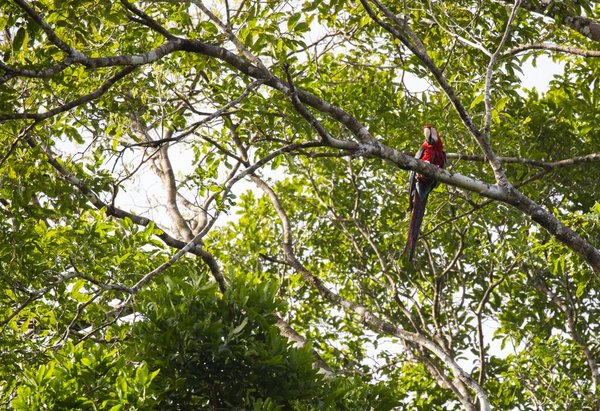 Read this article in French
Read this article in French- Share this article
- Subscribe to our newsletter
How to stop the dramatic biodiversity loss?
World leaders called for increased resolve to protect global biodiversity at the United Nations Summit on Biodiversity under the theme of “Urgent action on biodiversity for sustainable development” on 30 September 2020.
Nearly 150 countries and 72 Heads of State and Government addressed the first ever Summit held on biodiversity, to build political momentum towards the post-2020 global biodiversity framework to be adopted next year at COP15 in Kunming, China.
The UN Summit on Biodiversity took place at a time when reports show that global efforts have failed to reach any of the 20 biodiversity targets countries set a decade ago, and the COVID-19 pandemic challenges people to rethink their relationship with nature.
A green recovery offers a lot of opportunities
“The degradation of local and regional ecosystems, unsustainable agricultural practices, and the exploitation of natural resources, are putting critical pressure on world ecosystems,” said the President of the General Assembly, Volkan Bozkir, who presided over the Summit. “Clearly, we must heed the lessons we have learned and respect the world in which we live.”
He added, “A green recovery, with an emphasis on protecting biodiversity, can address these concerns, mitigate risks, and build a more sustainable, resilient world. Doing so can help unlock an estimated USD 10 trillion in business opportunities, create 395 million jobs by 2030 and encourage a greener economy.”
In addition to leaders, the Summit heard from HRH Prince Charles, who called for a new “Marshall Plan” or a “blue-green recovery’ and from indigenous leaders who, as defenders of biodiversity, spoke about the need to allow indigenous people to use their traditional knowledge to preserve, protect and manage nature.
International natural heritage fund
On the occasion of the United Nations Summit on Biodiversity , the German Federal Minister for Economic Cooperation and Development, Gerd Müller, announced that an international natural heritage fund is to be set up to ensure sustainable financing for nature conservation areas. The new natural heritage fund aims to pool public and private contributions and in this way ensure sustainable financing of conservation areas in developing and emerging countries.
Germany’s Federal Ministry for Economic Cooperation and Development (BMZ) is working together with the International Union for Conservation of Nature (IUCN), the United Nations Educational, Scientific and Cultural Organization (UNESCO) and German and international nature conservation organizations such as the World Wide Fund for Nature (WWF) and the Frankfurt Zoological Society on setting up the natural heritage fund, which is to be completed by the end of the year.
The 30 per cent goal
75 per cent of the Earth’s land surface has been significantly altered by human actions, including for example the loss of 85 per cent of the area of wetlands. And 66 per cent of the ocean area is experiencing multiple impacts caused by people, including from fisheries, pollution, and chemical changes from acidification.
The international community aims for 30 per cent of global land and sea areas to be under protection by 2030. This has provoked criticism from non-governmental organisations in the past, who fear that it would infringe the rights of indigenous peoples (Rural 21 reported).
(UNEP/UN/BMZ/ile)
Website of the United Nations Summit on Biodiversity





Add a comment
Be the First to Comment